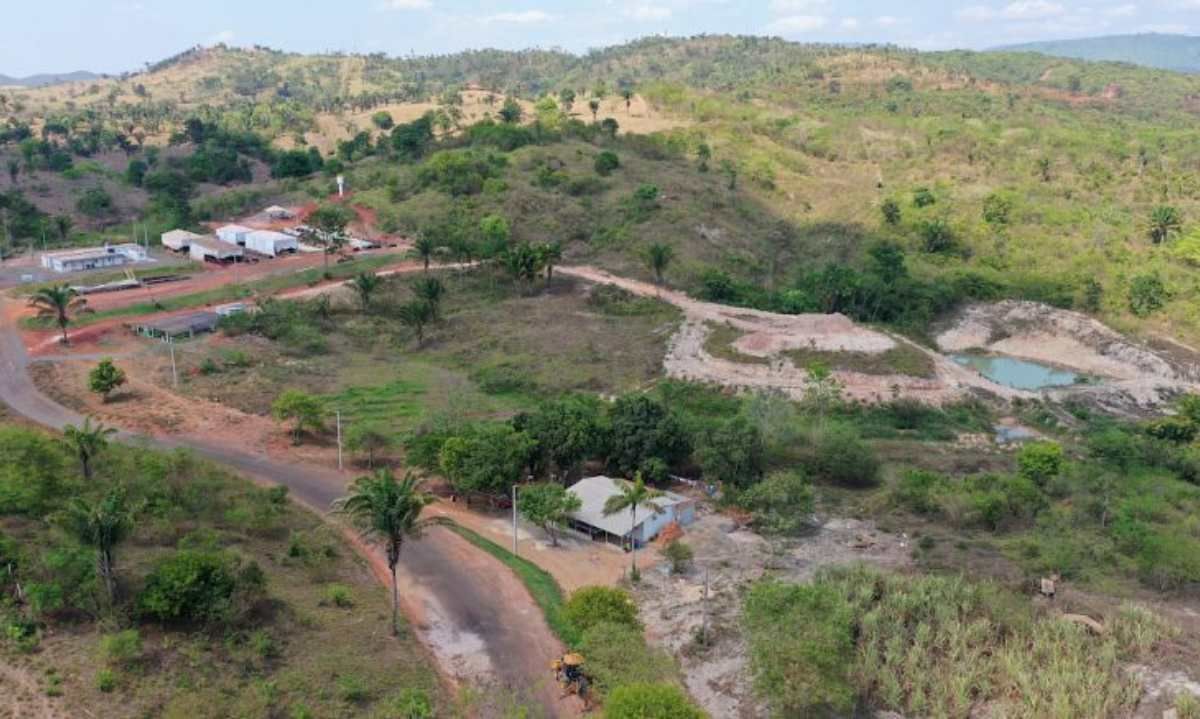
The results come as copper comes into increasing demand as a critical mineral needed for the green energy transition.
Bravo Mining shares surged more than 40% to $3.25 each, their highest level since January, after the company announced high-grade copper intercepts at its Luanga project previously better known for its platinum group metal (PGM) resources.
Highlights from drilling at Bravo’s T5 target include 11.48 metres grading 14.3% copper, 3.3 grams gold per tonne and 0.11% nickel from 165.6 metres depth in hole DDH2405T002, the company said in a release on Tuesday. That hole also included 2.9 metres at 22.9% copper, 3.6 grams gold and 0.07% nickel. High-grade copper in the hole remains open at depth and along strike at the site, located about 2,700 km north of Rio de Janeiro.
“We are very encouraged by the discovery of high-grade copper and shareholders should be cognisant that Luanga is situated within the world class Carajás iron oxide copper gold (IOCG) province, an area very fertile for high-grade copper discoveries,” Bravo CEO and chair Luis Azevedo said in the release. “These results are a credit to Bravo’s highly skilled geology team who are only now beginning to uncover the very exciting copper potential adjacent to Luanga’s tier one (platinum group metals, gold and nickel) deposit.”
The results come as copper comes into increasing demand as a critical mineral needed for the green energy transition.
New copper story
In a note on Tuesday, BMO Capital Markets analyst Raj Ray wrote that the impact of Bravo’s discovery of IOCG-style mineralization is positive in the context of Carajás province, known for IOCG deposits. Vale (NYSE: VALE) operates its Salobo and Sossego copper-gold mines in the same province of Para state.
Ray added that the potential for copper adds to the attractiveness of Luanga, which until Tuesday’s results was mainly known as a PGM (and possibly nickel) project.
“Although still in the early stages, the discovery of copper mineralization could however add an altogether different dimension to the company,” Ray said. “The Bravo team, including CEO and chairman Luis Azevedo and president Simon Mottram, have significant prior expertise developing IOCG type deposits.”
The mineralization at T5, located 1 km east of the main Luanga deposit shows evidence of being within a hydrothermal system that overprints local felsic meta-intrusive rocks, Bravo said. Mineralization also appears consistent with the IOCG-style mineralization typical for the Carajás mineral province.
The next drill hole at T5, DDH2405T004, contains 9 metres of massive/semi-massive/breccia IOCG-style copper sulphide mineralization, and appears to confirm continuity of the mineralization, though assays are pending.
Drilling at the T6 target, 3 km east of T5, intersected 6 metres of massive/semi-massive breccia sulphides grading 0.11% copper, 0.02% nickel and 0.01 gram gold in hole DDH2406T001.
T5 and T6 are among 11 priority electromagnetic (EM) anomalies hosted inside the Luanga tenement where Bravo is focusing follow-up drilling.
The company has budgeted for 3,000 metres of drilling on the EM anomalies and will continue evaluating the T5 and T6 targets, as well as the other nine high priority conductors defined by helicopter-based EM geophysical surveys.
Luanga hosts 73 million indicated tonnes grading 0.78 gram palladium for 1.8 million oz. palladium, 0.53 gram platinum for 1.2 million oz., 0.07 gram gold for 158,207 oz., and 0.13% nickel for 89,539 tonnes, according to an initial resource released last October. Its inferred resources total 118.1 million tonnes at 0.61 gram palladium for 2.3 million oz., 0.59 gram platinum for 2.2 million oz., 0.04 gram gold for 134,520 oz., and 0.10% nickel for 104,640 tonnes.
That report increased the respective resources by 38% and 62% over the 2017 historical estimate.
Bravo has a market capitalization of $352 million. Its shares traded in a 52-week range of $1.47 and $5.24.




